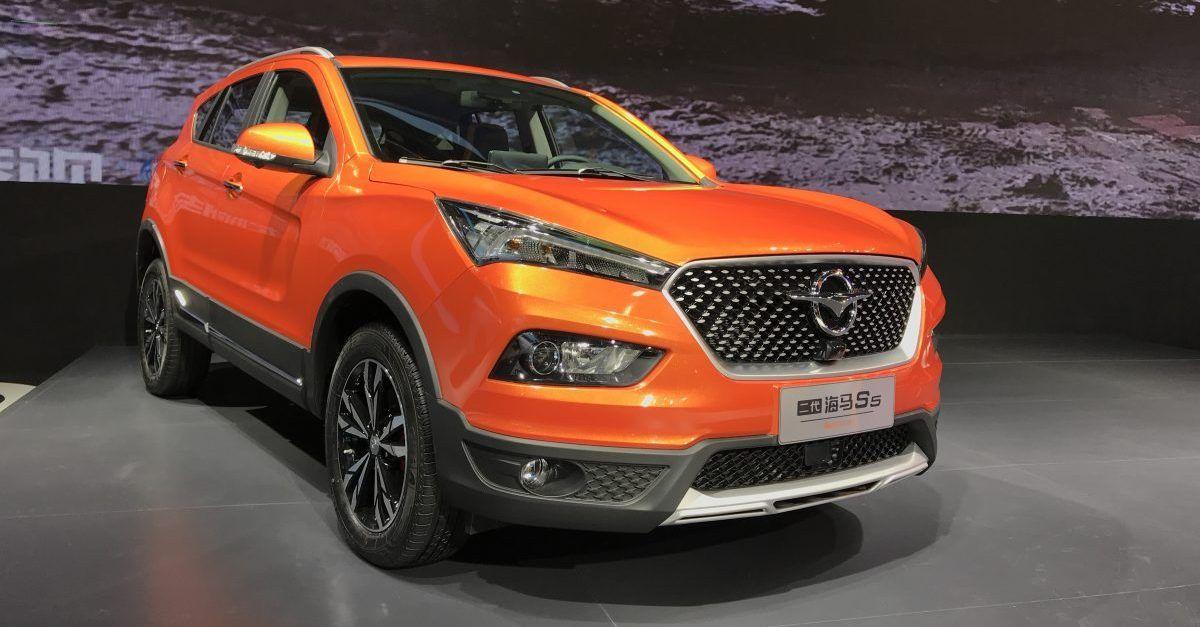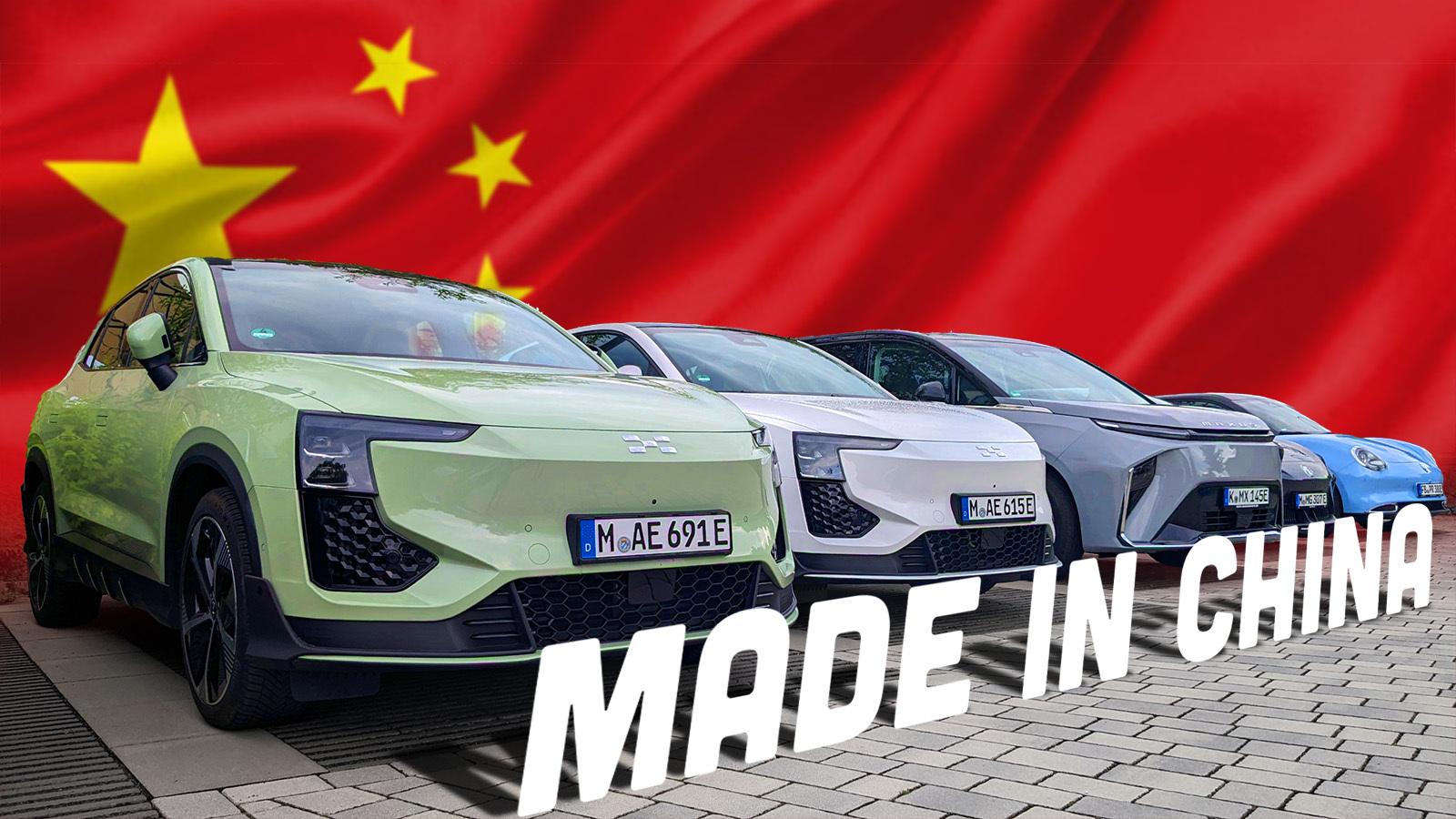In recent years, the automotive landscape has undergone a seismic shift, with Chinese manufacturers emerging as formidable players on the world stage. Once relegated to a niche market dominated by legacy brands, Chinese carmakers are now at the forefront of innovation, sustainability, and market share growth. Spearheaded by technological advancements and strategic global partnerships, these manufacturers are not only reshaping consumer perceptions but are also influencing trends in electric vehicles (EVs), autonomous driving, and connectivity. As the demand for eco-friendly transportation escalates, China’s automotive industry is poised to lead the charge, offering a compelling narrative that combines ambition, ingenuity, and a vision for the future. This article explores how Chinese cars are revolutionizing the global automotive market, challenging traditional paradigms, and setting new standards for what consumers can expect from their vehicles.
Table of Contents
- Emergence of Chinese Automotive Manufacturers in the Global Landscape
- Technological Innovations Driving the Future of Chinese Cars
- Sustainability Practices: How Chinese Automakers are Leading Eco-Friendly Initiatives
- Strategic Partnerships and Market Penetration: Recommendations for Global Expansion
- To Wrap It Up

Emergence of Chinese Automotive Manufacturers in the Global Landscape
In recent years, there has been a significant surge in the presence of Chinese automotive manufacturers on the global stage, redefining the competitive landscape of the automotive industry. This rise is attributed to a combination of strategic innovation, aggressive expansion into international markets, and a commitment to sustainable practices. Chinese brands such as BYD, Geely, and NIO have not only been electrifying their offerings but also embracing advanced technologies like autonomous driving and connected car services. These trends are fostering a new era where formerly niche brands are now emerging powerhouses capable of challenging established automotive giants.
The impact of these manufacturers is underscored by their ability to offer a diverse range of products at competitive prices, making electric vehicles more accessible to a global audience. Key advantages include:
- Rapid Production Capabilities: The ability to scale production to meet rising demand.
- Government Support: Backing from the Chinese government to promote electric vehicle growth.
- Global Partnerships: Collaborations with Western companies to enhance technology sharing and market entry.
As they continue to invest heavily in research and development, the emergence of these manufacturers signals a shift in consumer choices and expectations, paving the way for potentially groundbreaking changes in how vehicles are designed, manufactured, and sold globally.

Technological Innovations Driving the Future of Chinese Cars
In recent years, the landscape of the automotive industry has been significantly transformed by technological innovations, with Chinese manufacturers leading the charge. Companies such as BYD, NIO, and Geely are integrating cutting-edge technologies into their vehicles, positioning themselves as pioneers in the global market. Notably, advances in electric vehicle (EV) technology have allowed for longer driving ranges and faster charging times, addressing two of the most significant concerns for potential EV buyers. Furthermore, the implementation of artificial intelligence in autonomous driving systems is enhancing driver safety and user experience. Chinese carmakers are also focusing on eco-friendly materials and smart connectivity, seamlessly integrating vehicles with internet-of-things (IoT) systems for a more connected experience.
Another remarkable trend is the emphasis on data integration and sustainability, which are becoming essential selling points. Many manufacturers are utilizing real-time data to streamline production processes and enhance vehicle features. For example, NIO’s innovative battery swap technology allows drivers to change batteries in under five minutes, a game-changer for long-distance travel. Additionally, the rise of cloud computing is fostering a new era of shared mobility solutions and optimizing vehicle performance through over-the-air software updates. Below is a summary of some key technological innovations that are reshaping the industry:
| Innovation | Description |
|---|---|
| Electric Powertrains | Enhanced battery technology leading to increased range and efficiency. |
| Autonomous Driving | AI-driven systems for safer, smarter driving experiences. |
| Vehicle Connectivity | IoT integration for a seamless, connected driving environment. |
| Data Analytics | Real-time data usage improving operational efficiency. |
| Sustainability Initiatives | Focus on eco-friendly materials and production methods. |
Sustainability Practices: How Chinese Automakers are Leading Eco-Friendly Initiatives
In recent years, numerous Chinese automakers have taken significant strides in adopting eco-friendly practices, positioning themselves as leaders in the global shift towards sustainability. Companies such as BYD, NIO, and Geely have committed to reducing their carbon footprints through innovative energy solutions and sustainable manufacturing processes. These manufacturers are not only focusing on electric vehicle (EV) production but are also investing in the development of battery recycling technologies and renewable energy sources to power their factories. This holistic approach demonstrates their dedication to minimizing environmental impact while meeting the growing demand for cleaner transportation options.
Further contributing to their sustainability efforts, many Chinese automakers have embraced circular economy principles, aiming to create a more sustainable lifecycle for their vehicles. Initiatives include:
- Utilization of recycled materials: Incorporating recycled plastics and metals in vehicle production to reduce material waste.
- Energy-efficient manufacturing: Implementing energy-saving technologies in production processes to lower emissions.
- EV charging infrastructure: Collaborating with local governments to establish widespread EV charging networks that promote electric vehicle use.
Moreover, as part of their long-term vision, several leading automakers have set ambitious targets for carbon neutrality. The following table outlines their commitments:
| Company | Target Year | Commitment |
|---|---|---|
| BYD | 2030 | Carbon-neutral manufacturing |
| NIO | 2025 | 100% carbon-neutral products |
| Geely | 2040 | Full sustainability in operations |
Strategic Partnerships and Market Penetration: Recommendations for Global Expansion
To effectively penetrate global markets, Chinese automotive manufacturers should prioritize establishing strategic partnerships with established local players. This can enhance brand credibility and distribution channels. Key areas to focus on include:
- Joint Ventures: Collaborating with local companies can facilitate smoother market entry and compliance with regulatory frameworks.
- Technology Collaborations: Partnering with technology firms can help in innovating electric vehicle (EV) components and software, aligning with global sustainability trends.
- Shared Production Facilities: Utilizing existing factories can lower operational costs and increase production efficiency.
In addition to partnerships, leveraging data analytics for market insights will be crucial for tailoring offerings to different regions. Implementing strategies such as:
- Localized Marketing Campaigns: Utilizing culturally relevant messaging to resonate with local consumers’ preferences.
- In-depth Market Research: Conducting extensive research to understand consumer behavior and needs in emerging markets.
- Fleet Partnerships: Engaging with ride-sharing companies can provide valuable data and immediate consumer access.
| Strategy | Benefits |
|---|---|
| Joint Ventures | Access to local expertise and resources |
| Technology Collaborations | Enhanced innovation and production efficiency |
| Localized Marketing | Better engagement with target demographics |
To Wrap It Up
the rise of Chinese automotive manufacturers marks a significant shift in the global automotive landscape. As they continue to innovate and adapt to market demands, their impact is being felt far beyond China’s borders, reshaping competitive dynamics and influencing consumer preferences worldwide. With a focus on cutting-edge technology, sustainable practices, and affordable pricing, these manufacturers are not only challenging established giants but also setting new benchmarks for the industry. As electric vehicles gain traction and sustainability becomes a priority, China’s role as a leader in this transformation is set to expand. Automotive stakeholders—whether they be investors, consumers, or policymakers—must pay close attention to this evolving narrative, as the future of mobility increasingly hinges on the innovations emerging from China’s vibrant automotive sector.



